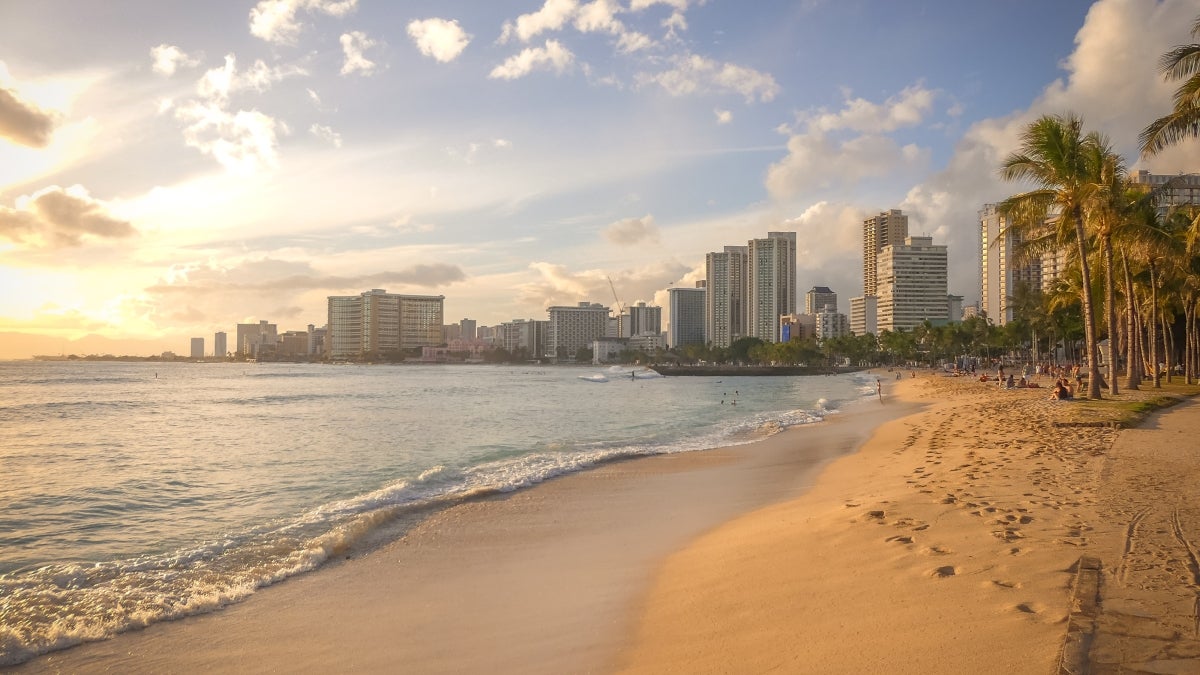Grant to study health access for Native Hawaiians, Pacific Islanders hits home for PhD student

For Steven Marsiglia, a counseling and counseling psychology doctoral student in Arizona State University’s College of Integrative Sciences and Arts, the dissertation project he’s working on is as much about family as it is about research.
Marsiglia received an R36 Mental Health Research Dissertation Grant from the National Institute of Mental Health/National Institutes of Health to study health access for Native Hawaiians and Pacific Islanders (NHPI).
One reason for the study, which will entail on online survey of 300 NHPI adults: More than 35% of Native Hawaiian and other Pacific Islander adults over the age of 18 did not see a doctor in 2014, the highest percentage among all racial groups, according to a National Health Interview Survey. Also, approximately one in eight NHPI adults are uninsured.
But it’s also personal for Marsiglia, who talked to ASU News about his dissertation for the start of Asian American and Pacific Islander Heritage Month in May.
Note: The interview has been edited for clarity and brevity.
Question: Why were you interested in this topic?
Answer: So, I’m Pacific Islander on my mom’s side. My mom is originally from American Samoa, and she became a U.S. national when she was born. But I think our community typically has struggled to get health care, whether it’s health insurance coverage or treatment. So, that’s really where the project started. Also, my clinical work and teaching I think all combined and helped me out with this application.
Q: What research and clinical work are you doing?
A: I’m doing my residency at San Francisco General Hospital with USCF (University of California at San Francisco). As clinical psychologists, we make a lot of decisions based off data for health and treatment and outcomes. I also teach an online course at a community college in Indigenous history.
Q: Why do you believe native Hawaiians and Pacific Islanders don’t seek out medical care?
A: It’s a complicated question and answer. Generally, when we talk about health disparities, people tend to do it from the lens of the community rather than the systems that they’re working in. With Pacific Islanders, there’s a history of colonization and forceful assimilation. When that happens, people might not be ready to take on the systems that you kind of provide them with or force them into. There’s a lot of distrust with giving your data to people that you don’t necessarily know.
Q: Is the reluctance both in terms of getting traditional medical care and mental health care?
A: Kind of care in general. One of the questions that I ask is, “What kind of health provider would you want to see?” I think that’s a question that we don’t ask a lot of times. Maybe that is a traditional healer and maybe that is a primary care physician. But if we don’t ask, then we really don’t know.
Q: This may seem like an obvious question, but what are the ramifications of NHPI adults not seeking medical care?
A: I think the biggest and most recent example was with COVID. The mortality rates for this community in particular were real high. In 20 of the states that were tracking mortality rates for Pacific Islanders, 18 had that community with most disproportionate mortality rates.
Q: What do you hope to accomplish with the study?
A: At its basic foundation, trying to convince NIH that it’s worth having more data on Pacific Islanders. They did a health interview survey in 2014 for just Pacific Islander households, but we don’t ask the same questions. As a researcher, as someone who’s in the community, I have different questions than what was collected. We just need more representation and data because, foundationally, data representation is the same as data equity and health outcomes. They all have implications on each other.
Top photo of Honolulu, Hawaii, by Tyler Lastovich via Pexels.com.
More Science and technology

Stuck at the airport and we love it #not
Airports don’t bring out the best in people.Ten years ago, Ashwin Rajadesingan was traveling and had that thought. Today, he is an assistant professor at the University of Texas at Austin, but back…

ASU in position to accelerate collaboration between space, semiconductor industries
More than 200 academic, business and government leaders in the space industry converged in Tempe March 19–20 for the third annual Arizona Space Summit, a statewide effort designed to elevate…

A spectacular celestial event: Nova explosion in Northern Crown constellation expected within 18 months
Within the next year to 18 months, stargazers around the world will witness a dazzling celestial event as a “new” star appears in the constellation Corona Borealis, also known as the Northern Crown.…

